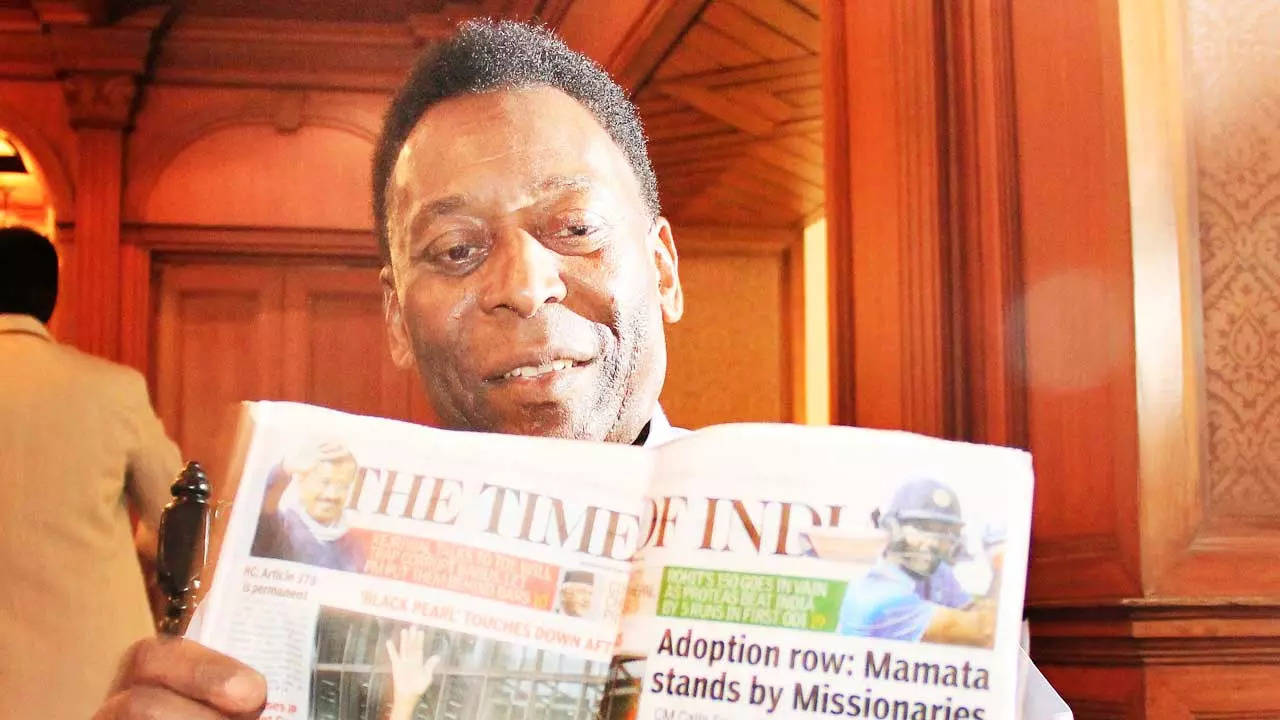
A rare interaction in Kolkata reveals why Pele held millions spellbound...
The room was on the 11th floor. One could see the vast expanse of the city of Kolkata, spread almost like a dream. Inside, a bunch of over-eager people waited anxiously for the legend to arrive. It was Pele’s second visit to Kolkata, this time without his boots on. It was the autumn of 2015. Some 37 years ago, when his legend was at high noon, Pele had come to Kolkata for an exhibition match against Mohun Bagan. But age had withered him as the century turned. The spring in his step was missing, though the sparkle in his eyes was undiminished.
He sat for an interview and addressed me as “my friend”. He has done millions of interviews throughout his long life, but this one remains special. I had brought him a gift. A series of photographs, clicked at the Pele Museum in Santos. A present for the man who adorned my childhood, and the childhood of millions like me across the globe.
The interview was done. It was time to make my way out when I hesitantly raised my hand and gave him the photographs. His agent in India was ushering me out when suddenly the ‘O Rei’ raised his hand and spoke in a gravelly voice that transformed everyone into statues.
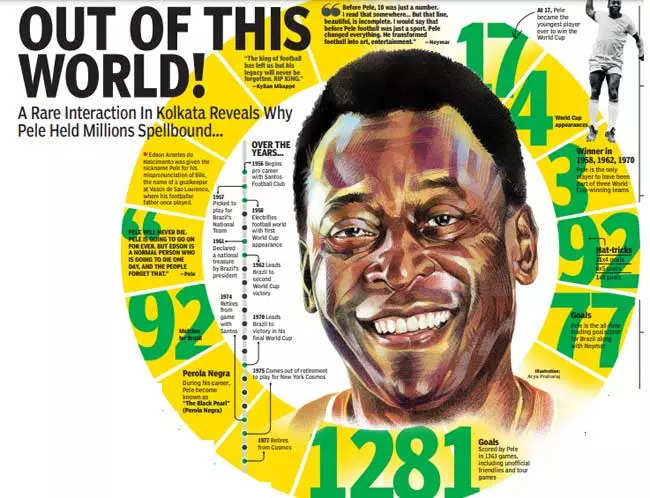
“Wait. All of you have come to meet me but this boy has got me things that I treasure the most.” I could have died then and there.
“I won’t give you back all five.” I barely managed to respond, “They are all for you, sir.”
He beamed his 1000-watt smile. “I will give you back one. Spell out your name please.” I somehow managed to stumble out the letters of my name and Pele, with whom I played the greatest football matches in my dreams, wrote out a personal note and signed the photograph. “You know, this was my first photo in the Santos shirt.” He handed me the photograph, shook hands, and said, “God bless you.” The spell broke.
On the way back to the office and since then on, I keep thinking about this man who held millions spellbound since he first burst into the world’s collective psyche in 1958. He was only 17, but with skill and vigour, guile and supreme technical ability.
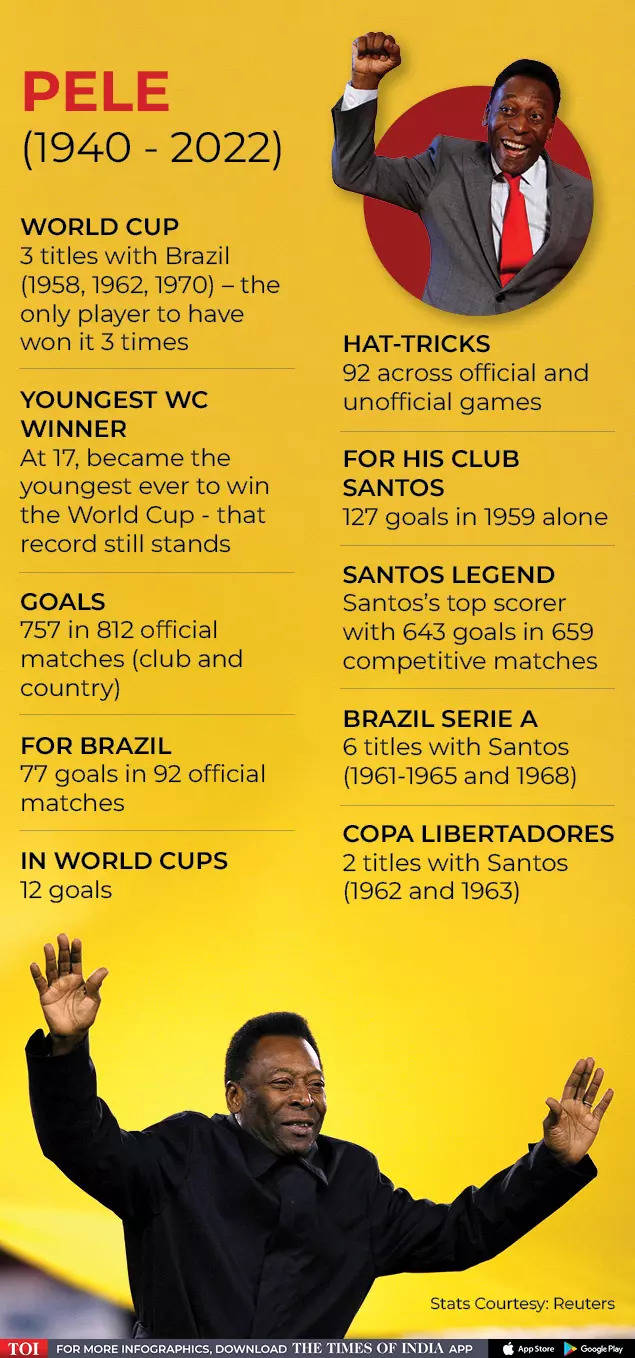
For those born in the tumultuous 1970s, when there was still hope of changing the world into a better place and sacrifices for the cause were revered, stories of Pele served as an inspiration, as redolent as the stories of Harriet Beecher Stowe and Nikolai Ostrovsky.
Achievements on the field alone is not enough to get a measure of the man. Three World Cup wins in four that he competed in with Brazil or the 1000 goals he scored or the innumerable magic moments he performed with the ball, which could fill anyone’s cup of joy, were just too limiting for Pele. His name itself spread a smile across millions of kids across the globe and made them fall in love with the beautiful game. His presence compelled warring factions to call for a ceasefire and heads of state made a point to invite the legend and shake his hand as a hallmark of their presidency.
It was the summer of 1970. As the Seleco team bus snaked along the streets of Mexico City towards Azteca Stadium for the World Cup final , winger Jairzinho, attacking midfielder Rivelino, capitan Carlos lberto Torres, Gerson, Tostao, Clodoaldo and the rest of the squad sang to the beat of the drum on their journey to immortality.
Only Edson Arantes Do Nascimento, known worldwide as Pele, sat hiding his face in his palms, trying to stop the tears. Some hours later, he broke down in tears again in front of the packed Azteca and millions watching on television after steering Brazil to their third World Cup title and securing the Jules Rimet Trophy in perpetuity.
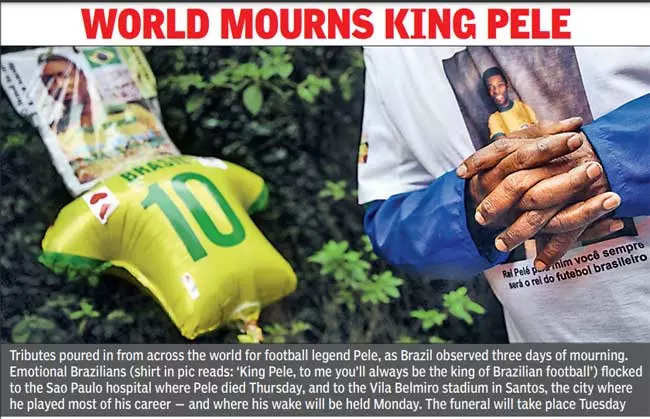
Pele’s tears, perhaps, spoke of the journey which began as a 16-year-old in Brazil’s canary yellow shirt with a scoring debut against Argentina. A year later, he fulfilled the promise he made to his dad Dondinho, when he saw his father crying after Brazil lost the World Cup final to Uruguay in 1950. He won his first World Cup title in Sweden in 1958 (with a hattrick in the semifinal and a brace in the final) and followed it up with the one in Chile, thanks to Garrincha’s heroics. “When we played together, Brazil never lost,” Pele later said.
The tournament in England ended in heartbreak as Pele was literally kicked out of the game against Portugal by Joao Morais. Never having captained Brazil in the World Cups, Pele came back as the leader of the Selecao in 1970 and as they say, the rest is history.

Pele was the unifying force for a vast, multicultural Brazil with large swathes of impoverished areas, from where he himself emerged to be the king of hearts. He went on to become the beacon of hope for the underprivileged world. Pele is to football what Nelson Mandela is to politics, a symbol of the struggle that would eventually find a rainbow.
As Mandela said, “To watch him play was to watch the delight of a child combined with the extraordinary grace of a man.”
In 1958, Pele was rough round the edges. In 1962 he was injured after the first game. In 1966 he was bludgeoned to submission with two-footed lunges but in 1970 he was experienced, prepared, fit and determined not to go out as a loser. The diamond, or Black Pearl as he was lovingly called, was in full lustre and dazzled like never before.
Such was his aura that his outrageous attempts were spoken in equally glowing terms as his astounding goals.
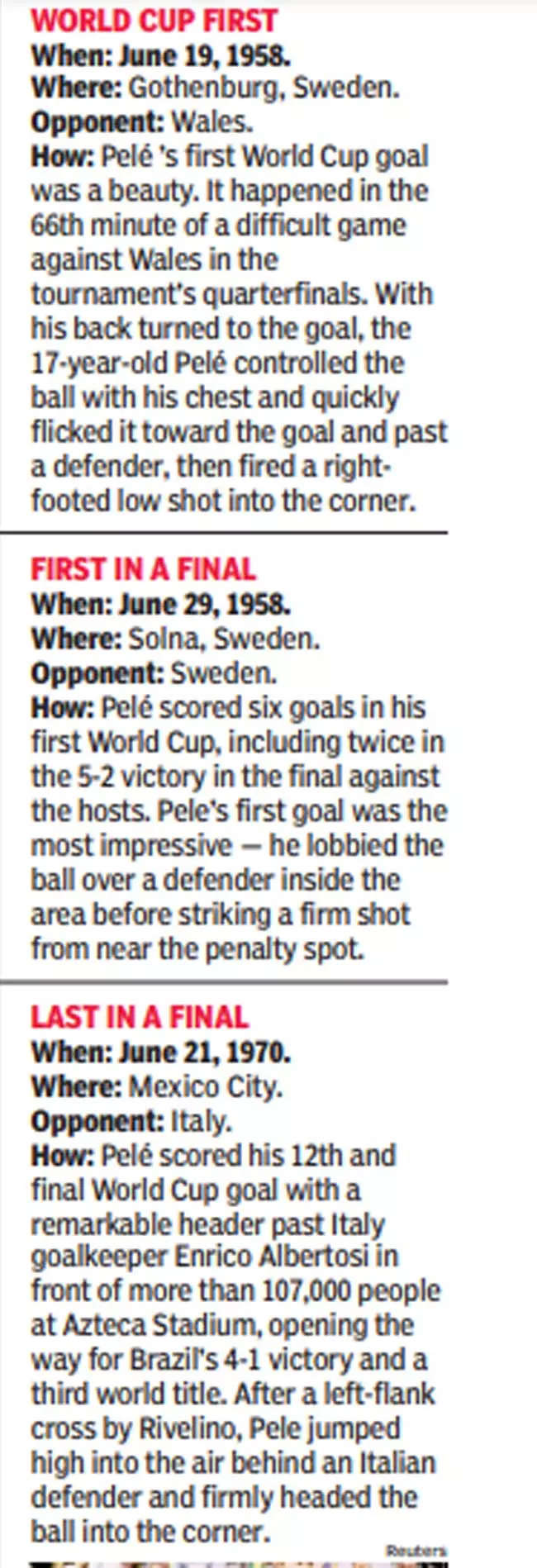
When news of his failing health and hospitalisation hit the headlines during the Qatar World Cup, the world prayed for his recovery with the Selecao, who walked the field with a banner carrying his photo. He went home one more time.
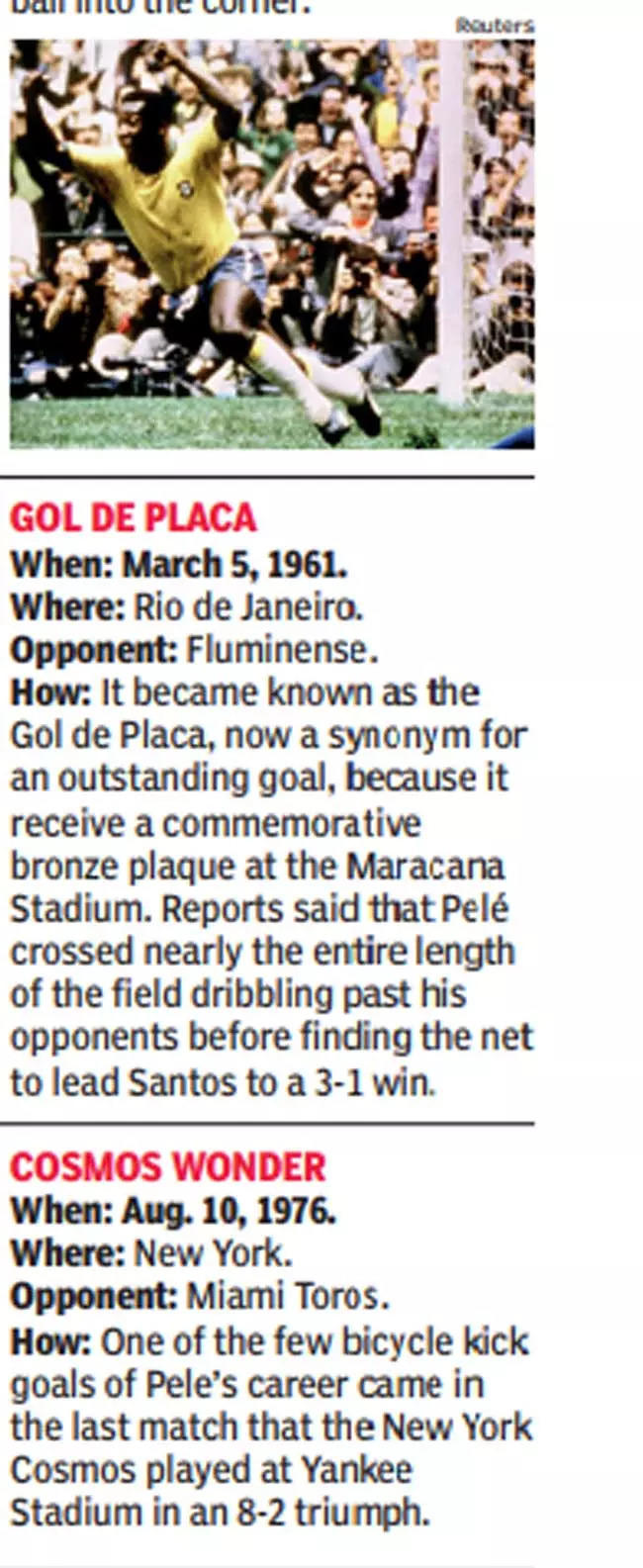
During the 2015 interview in Kolkata, he was asked about his plans for his 75th birthday (October 23), which was just around the corner.
Pele replied, “I was born in Tres Caracos, a small town in the state of Minas Gerais. Tres Caracos means three hearts. I am a man of three hearts. I thank God for staying in my house till 75 but I want it three times over.” The laughter that followed cascaded like a waterfall.
This time, you got it wrong, Pele. You will stay in our house forever. Till football will be played and World Cups happen, you will be celebrated, discussed, debated and loved. Your legacy has a start date in 1958. The end date is eternity.







